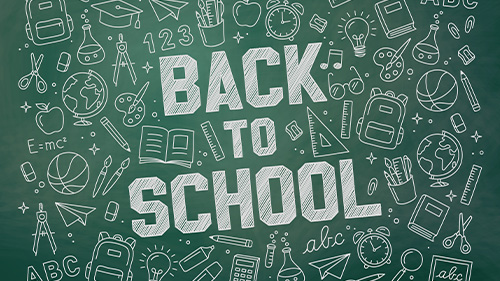6 Unique Exit Tickets to Use with Your Students
An exit ticket can be an effective way to determine if students are understanding what they are being taught. They provide immediate feedback, while...
AP & Honors Mathematics
Explore Wiley titles to support both AP and Honors mathematics instruction.
Literacy Skills & Intensive Reading
Connections: Reading – Grades 6–12
Empower student success with a proven intensive reading program that develops strong reading skills in striving readers.
Drama, Speech & Debate
Basic Drama Projects 10th Edition
Build students’ confidence and competence with comprehensive, project-based theatre instruction.
Literature
Connections: Literature
Support learners as they study dynamic, relevant texts and bring the richness of diverse voices to students through literature.
Literature & Thought
Develop critical thinking, reading, and writing across literacy themes, genres, historical eras, and current events.
Language Arts
Vocabu-Lit® – Grades 6–12
Help students build word power using high-quality contemporary and classic literature, nonfiction, essays, and more.
Connections: Writing & Language
Help students develop grammar, usage, mechanics, vocabulary, spelling, and writing and editing skills.
Reading/English Language Arts
Measuring Up to the English Language Arts Standards
Incorporate standards-driven teaching strategies to complement your ELA curriculum.
English Language Learners
Measuring Up for English Language Learners
Incorporate research-based best practices for ELLs with an approach that includes a focus on language acquisition strategies.
Mathematics
Measuring Up to the Mathematics Standards
Incorporate standards-driven teaching strategies to complement your mathematics curriculum.
Foundations
Measuring Up Foundations
Help students master foundational math skills that are critical for students to find academic success.
Science
Measuring Up to the Next Generation Science Standards
Give students comprehensive NGSS coverage while targeting instruction and providing rigorous standards practice.
Assessment
Measuring Up Live
Deliver innovative assessment and practice technology designed to offer data-driven instructional support.
For a better website experience, please confirm you are in:
4 min read
Measuring Up Oct 4, 2024 1:50:22 PM

With so much heated debate over the concept of teaching to the test, it almost seems counterintuitive to ask teachers to assess their students even more. However, assessments are the only way to discover if students are actually learning anything, and when done correctly, they can really help students think and grow.
Who says that an assessment has to be boring, tedious, and stressful to actually mean something?
Formative assessments are anything but those things. They can even be quite fun. And in most cases, students don’t even realize that they’re being assessed in the first place, so they stay relaxed and engaged in class—showing off the new knowledge and skills they’ve recently come to know.
What is Formative Assessment
Forget those end-of-unit tests or semester portfolios. Formative assessments include a variety of different activities that take place while students are actually learning, and they provide helpful and immediate feedback that educators can then use to inform their teaching as it happens.
Unlike summative assessments, which test student knowledge after learning has already taken place, formative assessments are more of a low-stakes strategy to see where students are at each day. They basically tell teachers whether it’s time to reteach information in a new way, clarify it, or move on to something else.
Benefits of Formative Assessment
The benefits of formative assessment are many, making it a powerful tool that teachers can use to reach each student individually and improve the overall success rate in their classrooms. By continuously monitoring student learning and providing helpful feedback in real-time, formative assessment strategies help teachers challenge their students in new and creative ways so that they can find academic success all year long.
Here are the top four benefits of using formative assessment strategies regularly in the classroom:
Once daily formative assessment strategies are implemented in the classroom, both teachers and students enjoy the perks right away.
Formative Assessment Strategies
There are tons of different options when it comes to administering formative assessment strategies in the classroom. And the more variety that’s offered, the greater the chance teachers have to reach each of their students throughout the week—letting them shine in the ways that come most naturally to them.
The very best part is that implementing new formative assessment strategies is just plain fun. This is a chance to get those creative juices flowing in the classroom and see where imagination can come into play.
Using the four prominent learning styles as a guide, teachers can utilize any of the well-known formative assessment strategies out there, tailoring them as needed to meet the needs of their particular students, or they can create their own.
Formative Assessment Ideas
Here are twelve formative assessment ideas anyone can use in the classroom organized by the prominent learning style they fall under.
Visual
Auditory
Reading & Writing
Kinesthetic

An exit ticket can be an effective way to determine if students are understanding what they are being taught. They provide immediate feedback, while...

Every spring, standardized testing can feel like a looming mountain for both students and teachers. The challenge is real: how do we prepare students...

For students, the back-to-school checklist mainly consists of the standard list of supplies, the requisite instructional materials, and maybe a new...

Spring is in the air, and school children all across the nation are entering the last leg of the academic year. But before the final bell rings, many...

Discover innovative and impactful strategies to honor student achievements and foster a culture of reflection and growth in K–12 classrooms.

Taking high-stakes assessments can be a stressful experience for students. But the right practice tools can help alleviate the pressure and even make...

There are so many more interesting methods to writing a character analysis than writing an analysis paragraph. Oftentimes, English or language arts...

We’ve heard of Project-Based Learning (PBLs), which allows students to mostly have independent leadership through a task or project and creative...

The Supreme Court of the United States is often seen as the most distant and befuddling branch for my students. Whether it is misunderstanding their...

Toward the latter half of my son’s junior year in high school (he’s a junior in college now), I went with him to the meetings set up by the...

Educational studies have proven time and time again that learning loss is a real phenomenon.

Summer is almost here. For many, it’s a time to relax and leave schoolwork worries behind. However, by the time school starts up again in the fall,...
